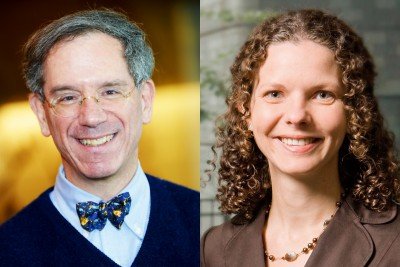Fuente: On Cancer | News and Insights from Memorial Sloan-Kettering
Expuesto el: jueves, 16 de agosto de 2012 17:37
Autor: publicaffairs@mskcc.org (Public Affairs)
Asunto: Researchers Find Early-Onset Testicular Cancer May Occur from Spontaneous Genetic Mutations
|
Although it is clear that genetic mutations contribute to cancer risk, researchers have been unable to pinpoint the genetic cause of most cancers arising at a young age in people without a family history of the disease. Now Memorial Sloan-Kettering researchers have found that some early-onset testicular cancers may result from spontaneous, or de novo, genetic changes. These de novo mutations are not inherited from either parent, but arise in either the egg or sperm cell or sometime during embryonic development. The mutations occur in the form of copy number variations (CNVs), in which one or more DNA segments are duplicated or deleted. Though previous research has demonstrated an association between de novo CNVs and autism, the new study, published in the August 10 issue of the American Journal of Human Genetics, is the first to suggest that these types of DNA changes may also be linked to cancer susceptibility. “We now have the first evidence that de novo CNVs could be linked to cancer predisposition,” says medical oncologist Zsofia K. Stadler, who led the study. In addition to improving understanding of the genetic origins of testicular cancer, the authors indicate that similar spontaneous changes may be critical to understanding the origin of other pediatric cancers. CNVs and Testicular Cancer Because de novo CNVs have been found in higher rates in children with certain disorders, including autism and schizophrenia, the Memorial Sloan-Kettering team suspected that these types of genetic changes might also play a role in cancers that occur in younger people. The researchers looked for CNVs in 116 people with early-onset testicular cancers (diagnosed at or before age 35), breast cancers (diagnosed at or before age 45), and colorectal cancers (diagnosed at or before age 50). Comparing the DNA of these people with the DNA of their unaffected parents, scientists found that 7 percent of the men with testicular cancer had de novo CNVs. None of the patients with breast or colorectal cancer had these DNA changes. “We have always known that even in cancer-prone families, the mutations had to start somewhere,” says Kenneth Offit, Chief of the Clinical Genetics Service and the study’s senior author. “In this study, we appear to have pinpointed the spontaneous origin of genetic changes in the most common cancer occurring in young men.” The researchers propose that de novo changes might be more relevant to cancers that affect people before their reproductive years, as in many men with testicular cancer. In these cases, genetic abnormalities have rarely been passed between generations, and instead develop anew for each person. In contrast, breast and colorectal cancers, even if they affect a person early in life, usually arise after the age of reproduction, which could partly explain the lower frequency of de novo mutations in these cancers. Future Research For the next stage of research, Memorial Sloan-Kettering investigators will focus on the DNA regions where CNVs were found in order to understand how these changes are affecting the function of genes and proteins. In addition, they are using advanced genetic sequencing technology to look for additional de novo changes — apart from CNVs — in survivors of childhood malignancies. This approach, called next-generation sequencing, can scan the entire genome to detect the tiniest of mutations, where a single DNA base (the commonly known T, C, G, and A that make up the “letters” of DNA) differs between child and parent. “I think we’re going to find these kinds of genetic changes in several early-onset cancers,” Dr. Stadler says. “With newer sequencing technology, we will be able to identify other rare alterations affecting cancer risk that were previously impossible to detect.” This research was supported in part by funding from the Starr Cancer Consortium, The Society of MSKCC, and the Damon Runyon Cancer Research Foundation.
|

